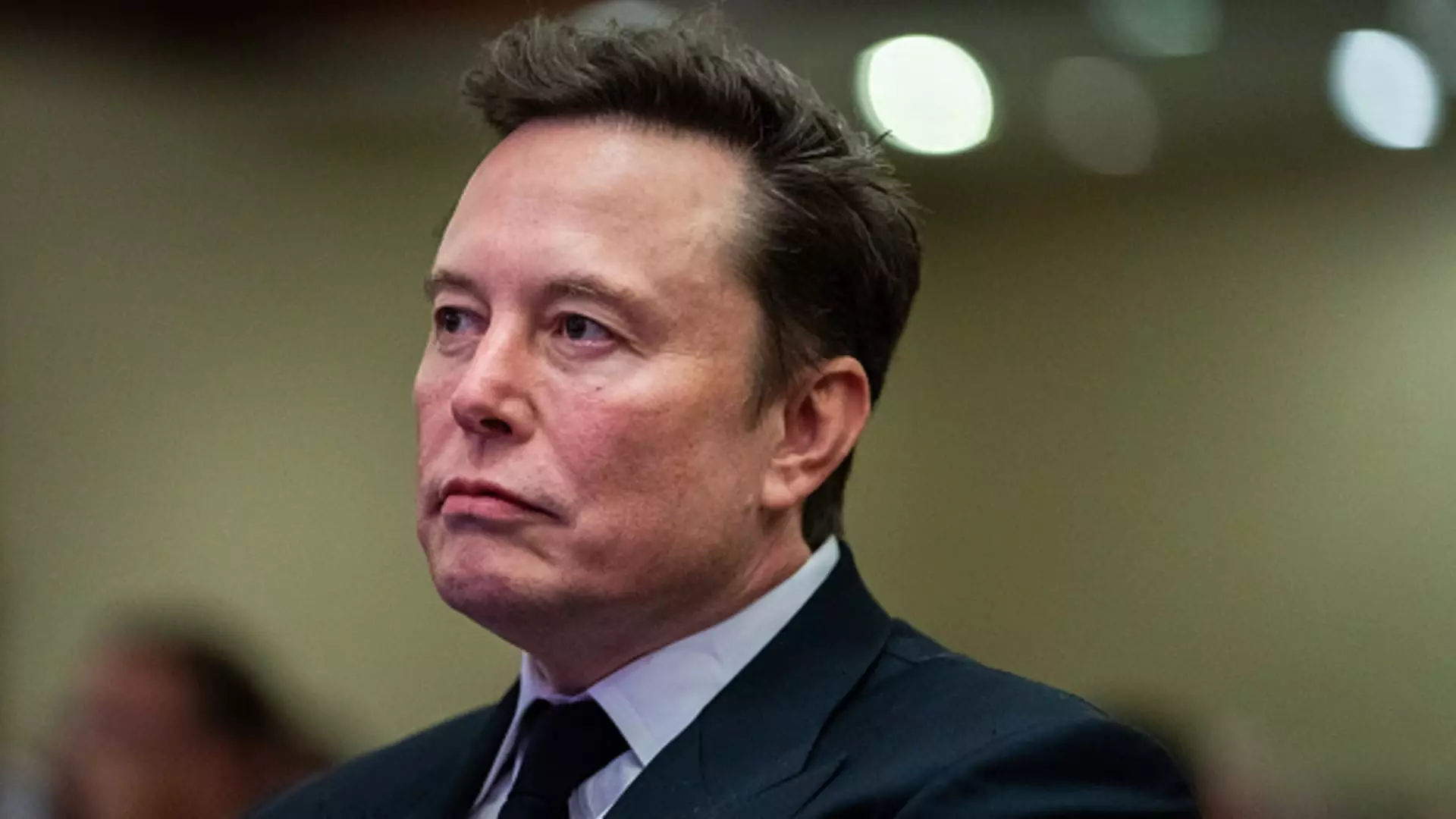In a dramatic unfolding of events, Elon Musk has once again found himself at odds with the U.S. Securities and Exchange Commission (SEC). The billionaire entrepreneur disclosed a “settlement demand” from the SEC through a social media post, hinting at escalating tensions between one of the most prominent figures in tech and the regulatory body. The conflict revolves around allegations related to Musk’s transactions concerning Twitter shares and his actions while navigating the complexities of his leveraged buyout of the social media platform.
Musk publicly shared a letter crafted by his lawyer, Alex Spiro, addressed to SEC Chair Gary Gensler. This correspondence outlines allegations of pressure from the SEC, urging Musk to agree to a settlement that includes financial penalties within a narrow timeframe of 48 hours. Failure to comply, the letter warned, could lead Musk to face serious securities fraud charges, an assertion that reflects the gravity of the situation. Reports indicated that the SEC had been scrutinizing Musk’s stock activities, especially concerning shares of Tesla, as potential securities violations emerged during 2022.
The implications of such a settlement demand extend beyond mere legalities; they resonate deeply within the financial markets and influence investor sentiment. Musk’s stature as a tech giant means that developments in his legal struggles can have ripple effects across various sectors, leading analysts to pause and reassess the stability of their investments in companies associated with him.
In a characteristic display of his unconventional approach, Musk took to social media to voice his frustrations. With a mix of sarcasm and playfulness, he shared a facepalm emoji alongside his grievances in a post that questioned Gensler’s motivations. The absurdity of the situation was further amplified when Musk commissioned an AI-generated illustration depicting Gensler as a snail in a suit, encapsulating Musk’s irreverent attitude toward authority and regulation.
The juxtaposition of seriousness and jest reflects Musk’s tendency to navigate crises with a flair for the dramatic. Furthermore, it raises questions about the ethical implications of public figures using platforms like Twitter to castigate regulatory bodies. In an era where social media can amplify voices, Musk’s actions illustrate the delicate balance between accountability and public perception.
Musk’s legal counsel articulated a narrative of persistent hostility from the SEC, claiming that the agency has engaged in a prolonged campaign of harassment spanning over six years. Accusations surfaced regarding the SEC’s renewed scrutiny of Musk’s ventures, including Neuralink. Spiro’s insistence that the SEC is motivated by factors outside the scope of their regulatory authority raises concerns regarding the integrity of governmental oversight and its potential influence over private enterprises.
Moreover, Musk’s tumultuous history with the SEC, ignited by a 2018 civil fraud case tied to his tweets regarding taking Tesla private, complicates the current situation. The financial penalties and forced changes to his involvement with Tesla established a precedent that Musk has continually challenged. His disdain for the SEC has become a defining feature of his public persona, fostering a narrative of rebellion against regulatory frameworks that some argue are necessary for market stability.
The ongoing confrontation between Musk and the SEC holds potential ramifications for both parties involved. For Musk, a prolonged dispute could tarnish his reputation further, particularly among investors who value governance and transparency in leadership. Furthermore, a failure to reach a settlement may lead to damaging charges that could cloud his business ventures.
Conversely, the SEC must navigate the public relations minefield that comes with pursuing one of the world’s most influential tech figures. An unsuccessful prosecution could diminish the agency’s credibility, leading to criticism around its effectiveness and fairness. Conversely, a successful case could serve as a cautionary tale for other industry leaders, sending ripples through the tech ecosystem.
The intersecting paths of Elon Musk and the SEC encapsulate a complex rivalry marked by shifting powers, public perceptions, and the relentless pursuit of accountability. As Musk continues to challenge regulatory norms and push boundaries in the business landscape, the SEC finds itself at a critical juncture. The outcome of this confrontation will undoubtedly shape the narrative surrounding corporate governance and its implications for innovation in an increasingly scrutinous environment. Musk, with his undeterred audacity, remains emblematic of a new breed of entrepreneur willing to confront the Goliath of regulatory oversight, for better or worse.

